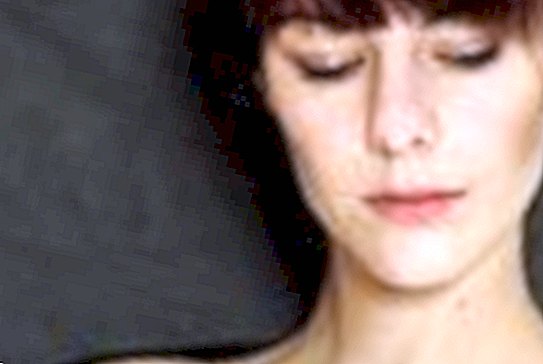Depression: Helping Medication as a Therapy?

Who does not know them, the days when nothing works? Still, the prejudice that depression is an overvaluation of such days, an exaggerated condition of thin-skinned people who can not deal properly with external discomfort or internal mood swings. Not even close. Depression sends the sufferer to the darkest depths of his personality; Everything, really everything seems without content and meaning. A constant shadow lies above all things and takes away light, color and life.
Around 15 percent of all people in Germany experience a depressive episode at least once in their lives. Being depressed is considered to be when symptoms persist for more than 14 days. Women are more affected than men. One in four goes through depression during their lifetime.
Melancholy and melancholy are not comparable to full-blown depression. Because they still leave people able to act, the Depressed but any creative power is lost. Author and illustrator Matthew Johnstone vividly described this process in his recent book "My Black Dog." His illustrations are memorable metaphors for depression, which the World Health Organization classified as a disease of the millennium.
Anyone who dares to go to the doctor is usually recommended psychotherapy, often combined with antidepressants. The active ingredient reboxetine, the effectiveness of which is now being called into question by the Institute for Quality and Efficiency in Health Care (IQWiG) in Cologne, is rarely used in therapy, Citalopram is more commonly prescribed: in 2006 alone there were 131 million daily doses. Antidepressants are a sales guarantee for the pharmaceutical industry - even though the chemical processes in the brain and body of depressive patients are poorly understood.
Antidepressants such as citalopram are referred to in the jargon as SSRIs - the abbreviation stands for "selective serotonin reuptake inhibitors". The drug therefore ensures that more serotonin is available in the body of the patient - serotonin is a central messenger substance in the brain. The active ingredient fluoxetine, known by the drug "Prozac", is one of them.
Medications such as Prozac usually help depressive patients over the first period of a depressive episode. When this was discovered in the 1980s, it was natural to interpret the disease as an expression of chemical imbalance in the brain. According to the theory, the sufferer simply lacks a balanced serotonin level.
As it turns out, that's only half the story. Researchers artificially reduced the amount of serotonin in subjects' brains. However, the subjects did not become overly or depressed. And even with already depressed patients, the experiment did not worsen their condition. Serotonin deficiency alone therefore can not be responsible for the onset or onset of depression.
Another observation shows how inadequate the theory of chemical imbalance is: although the serotonin level increases after taking SSRIs within hours. But it takes a few weeks for the patients to feel relief from their symptoms.
But why do Prozac & Co. help the depressives? Some recent research from recent months has suggested that the drugs make damaged nerve cells in the brain work better again. "The smartest thing is," says Ronald Duman, a professor of psychiatry and pharmacology at Yale University, "seeing depression as a mild neurodegenerative disorder." In other words: The nerve cells wither in a persistent depression. But this loss can be undone. If further research confirms the latest results, it shows once again: The brain is indeed a sensitive organ, but at the same time enormously regenerative.
You do not have to be a particularly sensitive type to get depressionHowever, character traits play a role. Who is uncertain and over accurate, is more at risk. Even those who find it difficult to draw the line between sacrifice and victimhood are considered vulnerable. Another role is played by the genes - familial the disease occurs frequently.
If an inherited predisposition meets favorable circumstances, the chance of a depression breaking out increases: Lonely people, for example, get sick much more often. In addition, everyone in life must break new ground; Those who are not caught by a family or circle of friends at these times run the risk of sliding into a depressive phase. Especially when fatal blows accumulate and there is hardly time to catch up again.










